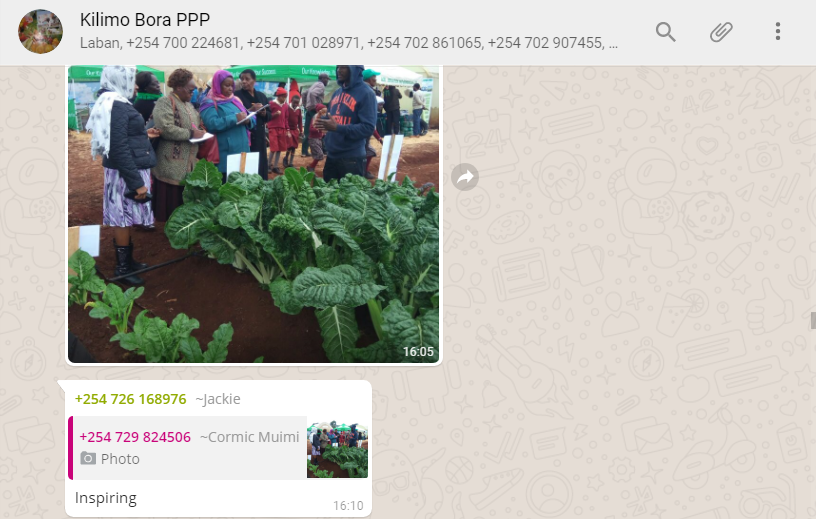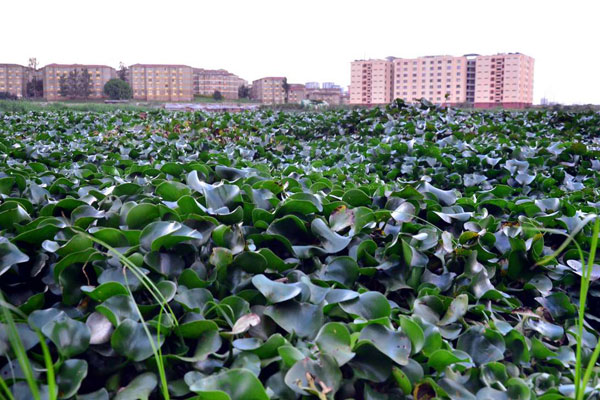Lack of better and up-to-date information that has made most farmers make uninformed decisions on farming practices leading to unnecessary losses has prompted group of some agricultural experts from western and parts of Rift Valley to start up a farmers’ Whatsapp group with the aim of sharing agribusiness information to bridge the information gap.
The group which is known as Kilimo Bora Public Private Partnerships comprises of agricultural officers from public and private sectors, information officers and farmers.
Mr. Milton Patrice, an agricultural extension officer from Bokeira Ward in Nyamira County is one of the founders and administrators of the group. “When we realised that our farmers were lacking better and immediate information on farm practices, we decided to start a WhatsApp group to help them,” said Patrice.
READ ALSO: Whatsapp helps poultry farmer make more sales on festive season
READ ALSO: Farmers make higher sales through WhatsApp
READ ALSO: Telegram group offers farmers free info
To avoid confusing farmers who are the majority in the group, the group is strictly about sharing agribusiness stories and any member posting anything other than that is warned or even expelled from the group if need be.
“In this time of heated political and social debates across the country we protect our members from being diverted from the main purpose of the group which is to share agribusiness issues to something else by sternly taking proper actions on members who post irrelevant posts,” said Patrice.
Some of the information circulated in the group include proper agronomics from planting to harvesting, new seeds and fertilizer, emerging technology in farming, farm machinery, agricultural events, and new methods in farming among others.
The group now prides in 233 members of which 200 are active since it was started in February this year. Every month over 40 farmers receive information on up to date upcoming agricultural events and new seed varieties . Trainings are organized and facilitated by extension officers within and outside the group.
“Since I joined Kilimo Bora Public Private Partnerships WhatsApp group I have benefited from advice from experts, connection with farm input suppliers and frequent assessments of my onion farm by extension officers,” Said Mercy Kemunto who is expecting to harvest her one acre of onions early August.
Patrice says that they have managed to group farmers in different areas for the benefit of those who cannot afford to be on WhatsApp due to one reason or another.
Farmers are just one of those many Kenyans who take advantage of the speedy Internet and the wake of smartphone usage in Kenya to help them get and share information not only to grow themselves but also the community.
Akamai’s 2016 State of the Internet report ranked Kenya’s internet as the fastest in Internet speed in Africa and Middle East.


















